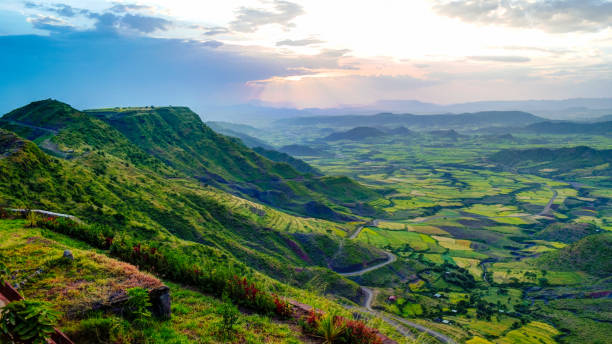Ethiopia Already Is the 'China of Africa'
Will Ethiopia transform into "the China of
Africa"? The request much of the time comes up in a budgetary setting:
Ethiopia's improvement rate is depended upon to be 8.5 percent this year,
beating China's foreseen 6.5 percent. Over the earlier decade, Ethiopia has
discovered the center estimation of around 10 percent advancement. Behind those
pompous numbers, nevertheless, is a disparaged normal part: Both countries feel
secure about their pasts and have a particular vision for their destinies. The
two countries assume that they will undoubtedly be unbelievable.
Consider China first. The nation state, as we presumably are
mindful it today, has existed for a couple of thousand years with some sort of
major intelligibility. Most Chinese identify with the recorded kingdoms and
organizations they look at in school, and the tomb of Confucius in Qufu is a
primary excursion spot. Visitors go there to pay veneration to a creator of the
Ethiopian Tour Operator.

This early history suggested China was all around arranged
to quickly develop a bleeding edge and intense nation state, once the
introduction of post-Mao changes upheld GDP. That provoked snappy gets in
system and direction, and arranged for China to end up one of the world's two
biggest economies. On the way, the Chinese held to a strong vision that it
ought to have been a wonderful nation before long.
My visit to Ethiopia keeps helping me to recall this key
picture. Ethiopia similarly had a reasonably create nation state ideal on time,
with the Aksumite Kingdom dating from the primary century A.D. Resulting
organizations, through medieval events and past, honed a fair part of power.
Most basic, the present Ethiopians see their country as a prompt development of
these earlier political units. Some great Ethiopians will declare to take after
their heredity the separation to King Solomon of scriptural events.
By the day's end, the strategy of made, national-level
organization has been in advance for a long time. It was this relative nature
of Ethiopian organization that empowered the space to fight off expansionism, a
phenomenal achievement. It is in like manner why, when you travel around the
country, a lot of the fundamental cooking doesn't change much: Dishes are seen
as national and not common.

It is along these lines nothing sudden that once Ethiopia
surrendered its 1970s confidant logic and set up some crucial changes, its organization
could live up to individuals' high desires. The system is shockingly awesome by
common benchmarks, and the Ethiopian government is known for coordinating a for
the most part productive mechanical approach. The state-had Ethiopian Airlines
is continued running as a competent business, it is transforming into a vital
air power, and models of organization are high.
The Ethiopians I have spoken with express a vital level of
vitality for their country and culture. Perhaps that isn't anomalous in a rapidly
creating nation, anyway I've been struck by how really settled these
estimations have been. Ethiopians are seriously aware of their past triumphs,
joining their part in scriptural history. Similarly, as different Iranians,
they see themselves as a human progression and not just a country. They
amazingly reluctantly detach themselves from the broader strands of African
history and culture. In addition, as in China, they hold an ideological
conviction that their country will undoubtedly be amazing again.

China and Ethiopia meet in yet another course, with the
Chinese building the place up. There are new and current space structures
scattered around Addis Ababa, worked by the Chinese, a light rail system in Addis that would look
better than average in any country, essential dams for hydroelectric power, and
a quick rail relationship with Djibouti and the float.
The pride of Ethiopians in their history and adaptability
from expansionism may help illuminate why the nation has recognized so much
Chinese establishment relationship with minimal confirmation of the tension
that has tormented some unique parts of Africa. The regular establishment doubt
in Ethiopia is that nonnatives may try to interfere, anyway the governing body
won't lose control.

Just to be clear, Ethiopia isn't generally a finished nation
state. There is spoiling question with Eritrea toward the north, a place
various Ethiopians immovably feel has a place with them. The southern and more
natural parts of the country are not for each situation all around fused into
the huge business centers driven by the highlanders, and there are clashes with
the Oromia and Somali territories toward the east. In this way, the national
cheerful dispositions found in the better made parts of the country are not
found everywhere.
In this way, in case you are hunting down an uncommon place
in Africa, Ethiopia may be your most strong alternative. In any case, to grasp
its continuous accomplishment, you have to go past course of action — it is
furthermore a matter of their history, their conviction and, in particular,
their considerations.

attract international tourists to Ethiopia.Qualitative interviews with tour operators and travel agents were conducted at three international tourism trade fairs and
ReplyDeletePrésentation de Tour company en Ethiopie